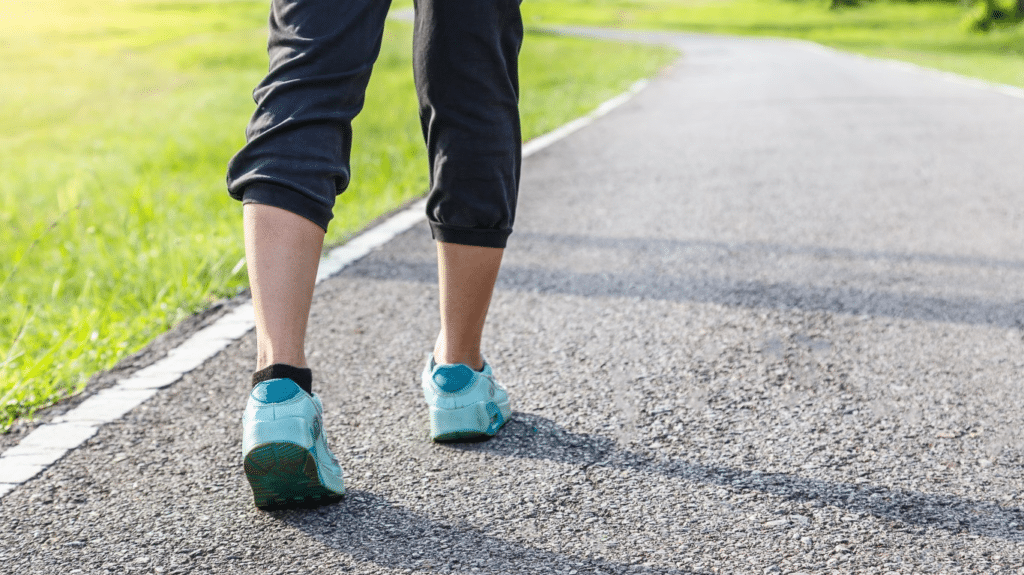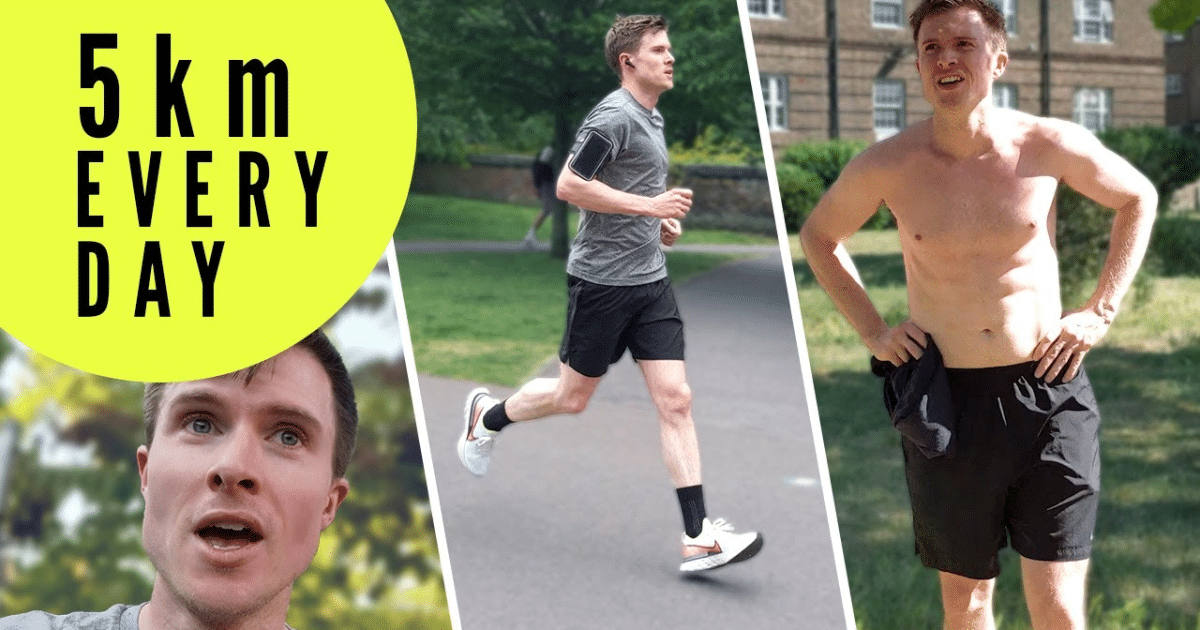A 5 km/hr walking pace on flat ground without breaks would take most adults around 1 hour and 15-20 minutes to walk 5 km. So, a reasonable time estimate is 1 hour and 15-25 minutes.
Walking is a great way to spend time outdoors, get exercise, and clear your mind. However, it is helpful to have an idea of approximately how much time different distances will require. How long does it take to walk 5 km? 5km is a moderate distance for many casual walkers.
The distance of 5 km or approximately 3 miles is frequently used when assessing walking times, as it represents a moderate length for a casual walk. The actual time it takes an individual to walk 5 km can vary based on factors like fitness level, terrain, pace, and breaks.
How Far Is a 5k Walk?
A 5k walk is a distance of 5 kilometers or approximately 3.1 miles. It provides a moderate goal that many recreational walkers and beginning runners can work up to. As a point of reference, Walk 5 km would be equivalent to walking over 30 city blocks if in an urban area. It allows individuals to explore and observe a decent section of their local surroundings on foot during their walk.
The Walk 5 km has become widely recognized and is frequently used for charity and community walk/run events. Many find it an enjoyable distance that most capable walkers can achieve within an hour or so based on their current fitness level and pace.
How Long Does It Take to Walk 5 km at Different Walking Speeds?
Slow walking pace (2.5 km/h)
- At a slow walking pace of 2.5 km/h, it would take approximately 2 hours to walk 5 km.
- This is a very leisurely pace that allows for stopping to take in the sights.
Casual/moderate walking pace (4 km/h)
- The average casual or moderate walking pace is around 4 km/h.
- At this typical pace, it would take about 1 hour and 15 minutes to walk 5 km.
Brisk walking pace (5 km/h)
- A brisk walking pace of 5 km/h is faster than a stroll but more quick than jogging.
- At 5 km/h, the time to walk 5 km would be approximately 1 hour.
Fast walking pace (6 km/h)
- For fit walkers moving at a fast pace of 6 km/h, it would take around 50 minutes to cover 5 km.
Swift/race-pace walking (7 km/h)
- Elite walkers could potentially walk 5 km in under 45 minutes at a fast race pace of 7 km/h or more.
walking 5 km can take anywhere from 1 hour to 2 hours, depending on individual fitness and walking speed. Fitter walkers will be closer to the 1-hour range.
You might want to check: How Many Miles in 15000 Steps? Discover the Distance
Factors that Affect How Long It Takes to Walk a 5 km
Age
Older adults and young children tend to walk slower than middle-aged folks. Aging causes reductions in muscles, joints, and cardiovascular fitness over time.
Fitness Level
A person who exercises regularly and spends time walking/hiking will have an increased aerobic capacity and find Walk 5 km easier than a sedentary person. Fitness translates to a faster pace.
Body Weight and Composition
Extra weight from obesity or carrying excess pounds makes walking more strenuous. Heavier individuals may tire more quickly over Walk 5 km. Body fat percentage also impacts stamina.
Effort Level
walking or striding briskly expends more energy than a casual stroller. Walking fast equals less time to complete 5 km versus taking one’s time.
Physical Limitations
Conditions like arthritis, bad knees/ankles, or lung issues can hamper mobility and require more prolonged or more rest breaks over the Walk 5 km distance. Injuries also slow the pace.
Terrain
Hilly or uneven ground requires more energy than flat, paved paths. Grass, sand, or trails demand more significant effort than sidewalks when racking up the km. Uphill sections slow the pace.
These various personal and environmental factors in mind can help estimate individual 5 km walking times more accurately. Fitter, younger folk on easy paths will take less time overall.

Tips for walking 5 km faster
- Walk consistently: Try to walk regularly, like 3-4 times a week. Your body will get used to it, and you will be able to walk faster.
- Add intervals: Do not walk at the same steady pace. Add some fast walking intervals between your average pace. You can fast walk for 2-3 minutes and then go back to normal. This will build your stamina.
- Walk longer distances: Gradually increase the distance you cover each time. Start with 3 km and slowly increase it to 5 km. Walking longer distances will make you fitter.
- Use your arms: Don’t keep your arms stiff. Swing your arms forward and backward when walking. This will help you maintain a better rhythm and pace. It will feel less tiring.
- Lengthen your stride: Take longer strides without increasing your pace. Focus on taking significant steps. This will help cover more distance with each step. Make sure not to strain yourself.
These simple tips help you to walk 5 km in a faster time. Be consistent with your practice, and you will see improvements. Listen to your body, and don’t push too hard.
How to track my 5 km walk time?
Here is a write-up on the different ways to track your Walk 5 km time:
Smartphone Applications
There are various running and walking tracker apps available for both Android and iOS that can help track your Walk 5 km. Popular options include Runkeeper, Strava, Adidas Running, MapMyRun, etc. These apps use your phone’s GPS to track distance, pace, and route and provide real-time stats.
Wearable Devices
Fitness trackers and smartwatches like Fitbit, Garmin, Apple Watch, etc., have built-in GPS that allows them to track walks and runs independently without needing their smartphone. They provide accurate distance tracking and pace calculations and allow saving your walk as an activity in the respective apps.
Stopwatch
A simple old-school way is to use the stopwatch feature on your phone or wristwatch. Start the timer as you begin your walk and stop it once you have completed 5km. This won’t provide route maps but gives a basic time for completion.
Treadmill
If walking outdoors is not convenient, you can use a treadmill at home or gym set at a comfortable pace to complete 5km. Most modern treadmills will display distance and time parameters to help track your progress.
Mapping Tools
Google Maps has a Your Places feature that lets you drop pins to mark the start and end points of your walk. Based on the distance between the two pins, the time taken to complete the 5km route will be calculated, which was helpful in the pre-GPS era. Some running apps also allow the creation of custom route maps.
Fitness apps and devices tend to provide the most accurate and detailed stats for tracking a 5km walk time but basic options like stopwatch work well too in a pinch. Choosing the right option depends on your needs and setup.

5k walk training plan for beginners
Here is a suggested 4-week training plan for beginners to walk a 5K (3.1 miles):
Week 1
- Day 1: Walk 30 minutes at a comfortable pace. Take walk breaks as needed.
- Day 2: Walk 30 minutes at a slightly faster pace. Take walk breaks if needed.
- Day 3: Walk for 30 minutes. Try to go full-time without a break.
Week 2
- Day 4: Walk 35 minutes at a comfortable pace. Take walk breaks if needed.
- Day 5: Walk 35 minutes at a slightly faster pace. Take walk breaks if needed.
- Day 6: Walk 35 minutes. Try to go full-time without a break.
Week 3
- Day 7: Walk 40 minutes at a comfortable pace. Take walk breaks if needed.
- Day 8: Walk 40 minutes at a slightly faster pace. Take walk breaks if needed.
- Day 9: Walk 40 minutes. Try to go full-time without a break.
Week 4 (week of the 5K)
- Day 10: Walk 45 minutes at a comfortable pace. Take walk breaks if needed.
- Day 11: Walk 45 minutes at a slightly faster pace. Take walk breaks if needed.
- Day 12: Rest or do a light walk on your off day.
- Day 13: 5K EVENT DAY! Walk/run the 5K at your own pace.
Tips
- Gradually increase your distance and pace each week
- Take rest days in between walks
- Stay hydrated and fueled with snacks during walks
- Listen to music or podcasts to help pass the time
- Walk with a friend for company and motivation
Frequently Asked Question
How long does it typically take an average person to walk 5 km?
For most healthy adults, it will take around 1-1.5 hours to walk 5 km at a casual pace of around 4-5 km/h.
Does walking speed affect how long it takes?
Yes, walking speed is a major factor. Faster walkers at 6 km/h could do it in around 50 minutes, while slower walkers at 3 km/h may take over 1.5 hours.
What if I’m walking with children or the elderly?
Expect it to take longer, perhaps up to 2 hours. Children and the elderly tend to walk slower and may need more breaks. Plan for a walking speed of around 3 km/h or less.
Does the terrain make a difference?
Definitely. Hilly or uneven terrain will slow you down compared to flat ground. You may need 10-20% more time for walking trails rather than sidewalks.
How can I track how long it takes me?
The best way is to use a fitness tracker or GPS app on your phone to accurately record your time and distance. You can then use future walks of similar terrain/effort as a guide for estimated completion times.
Final Thoughts
Walking 5 km is a moderate and achievable goal for many casual walkers and beginners. The typical time it takes for an average healthy adult to complete 5 km at a comfortable pace is around 1-1.5 hours. However, individual factors like fitness level, age, weight, terrain, and walking pace can affect time.
A fitness tracking device or app that provides the most accurate assessment of an individual’s 5 km time. With regular walking practice, improving pace, and increasing distances over time, most people can work towards achieving that 5 km goal and enjoying the mental and physical benefits of this popular distance on a walk.

With over 10 years of experience working in the fashion industry, I bring a unique expertise to my role. I am looking forward to sharing my knowledge and insights on the latest trends with my readers.











